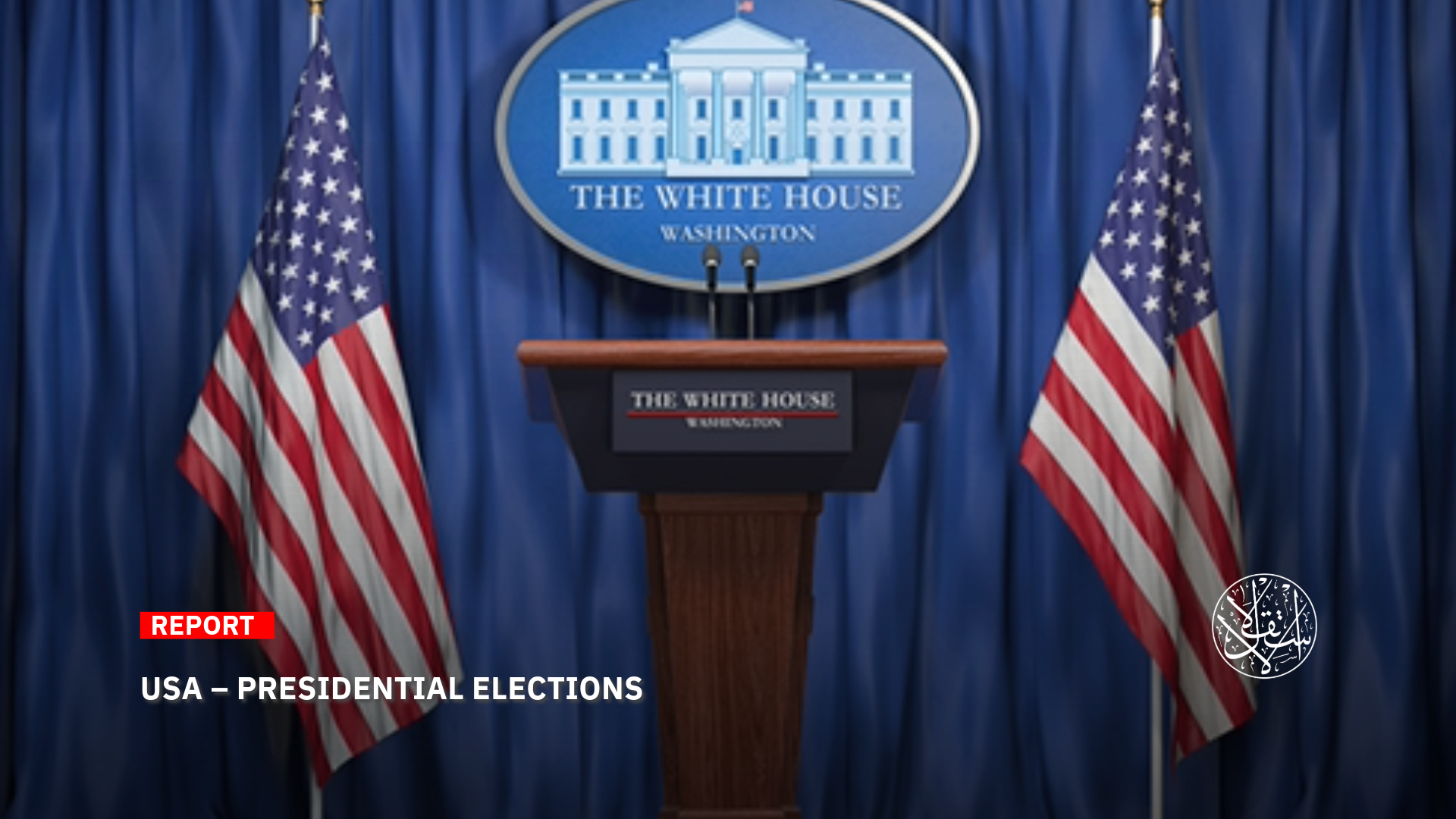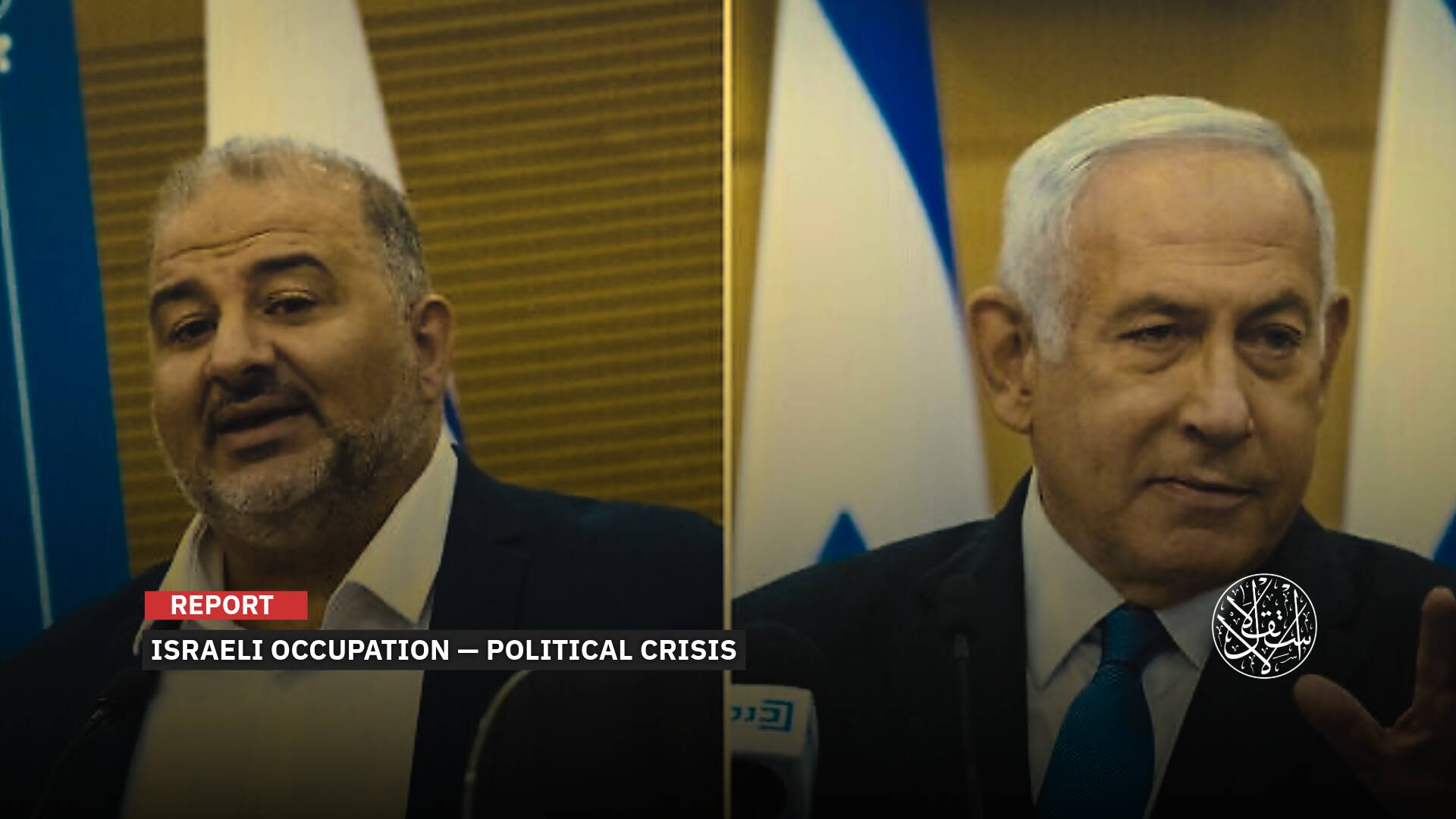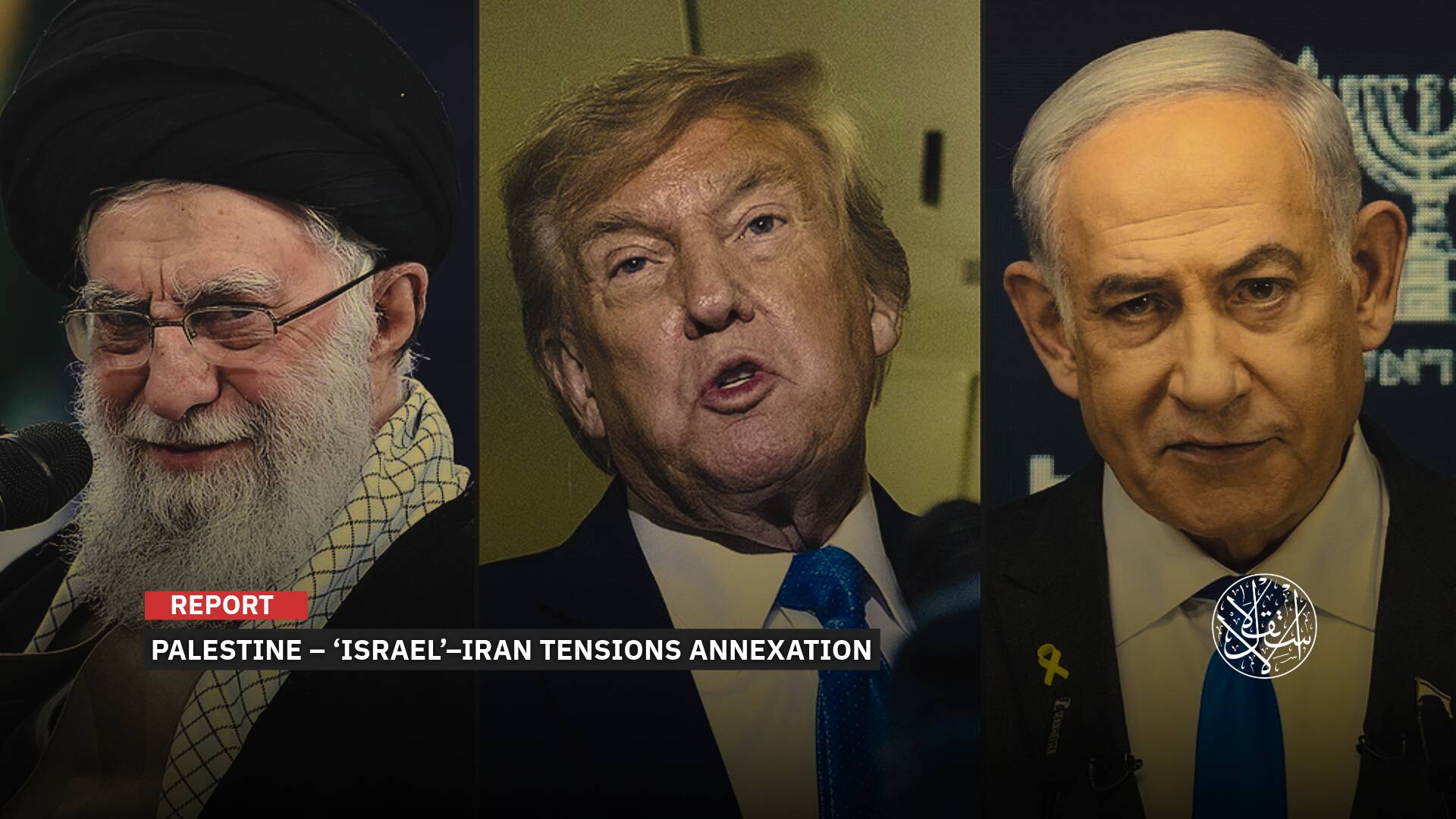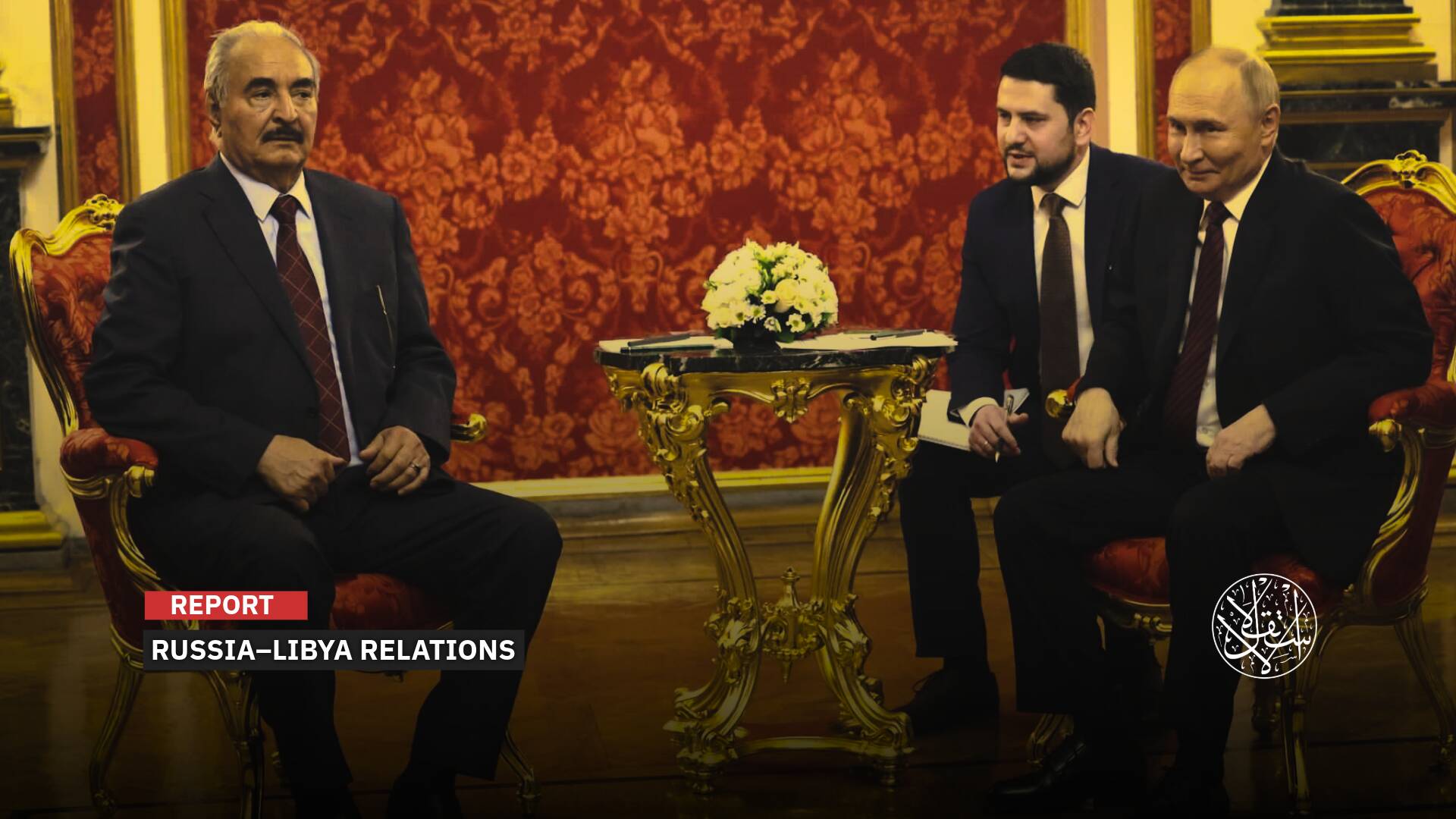How Will Harris Face the Dilemma of 'Uncommitted' in the Presidential Elections?

As the November election approaches, the duration and impact of pro-Palestinian protests remain uncertain.
Vice President Kamala Harris, who is running as the US Democratic Party's candidate in the upcoming November presidential election, finds herself in a challenging position, facing growing pressure from activists demanding a ceasefire in Gaza—a pressure that has persisted for months against both her and President Biden.
The demonstration that confronted Harris in Dearborn, Michigan, underscores the skepticism of critics regarding the U.S. administration's Middle East policies.
Shifting Stances
Despite the recent shift in the Democratic presidential campaign, many remain unconvinced that meaningful change is forthcoming.
Wael Al-Zayat, the director of Emgage, a Muslim advocacy organization, expressed this sentiment, saying "It’s clear to us, through her statements and what’s been leaked and conversations with people behind the scenes, she does feel differently," But those are feelings. … What’s needed is an articulation of a policy vision that’s different from what we’ve seen so far."
The persistence of the pro-Palestinian movement poses a potential threat, particularly in swing states like Michigan, where large Arab and Muslim communities reside in cities such as Dearborn.
The movement remains unconvinced by President Biden’s actions, as his strong support for the Israeli occupation has fueled further dissatisfaction. Activists are now pressing him to at least curtail arms shipments to the Israeli occupation.
Harris has shown a willingness to engage with community concerns but has so far stopped short of addressing their demands.
During a recent event, Laila al-Abed, co-founder of the non-conformist Movement, confronted Harris and her running mate, Tim Walz, about her group’s desire to halt arms shipments to the Israeli occupation.
Abed, invited by the Harris campaign, became emotional as she shook hands with the candidates, expressing the personal toll the conflict has taken on her as a Palestinian.
She later described Harris as “compassionate” and left the event with the impression that the vice president was open to discussing the proposed arms embargo with her group.
“I was thinking about the people in my community that I spoke to the day before,” Abed said, recounting how she told Vice President Harris about two community members who had lost 100 family members in the conflict.
Abed, who is also the sister of Michigan Representative Rashida Tlaib, added that Michigan voters want to support Harris, but they want a policy change that saves lives.
This incident highlights the delicate position Harris occupies as she navigates a deeply divisive issue that has fractured the Democratic Party, particularly among younger voters and progressives in key swing states.
Despite the interaction, the Harris campaign has not followed up with the group regarding the proposed arms ban.
The White House has since reiterated Harris’s support for Israel’s right to self-defense while also advocating for a ceasefire.
Her stance has left the pro-Palestinian movement at a crossroads, forcing its members to decide whether to maintain their confrontational approach with Biden or attempt to influence Harris through quieter, behind-the-scenes efforts.

Complex Relations
Democratic strategist Walid Shahid acknowledged the difficult position Vice President Kamala Harris finds herself in, especially given her role in shaping foreign policy.
"We understand she’s in a tricky spot as the vice president to a president who controls foreign policy. But in a number of areas, from foreign policy to immigration to economic policy — what is her plan for the country? And how does this plan differ from President Biden?" Shahid asked.
A spokesperson for Harris’s campaign emphasized her commitment to engaging with Arab and Palestinian communities, noting that she has made outreach to these groups a priority.
In a brief interaction with a group of undecided individuals, Harris reiterated her intent to maintain open lines of communication.
As the November election approaches, the duration and impact of pro-Palestinian protests remain uncertain.
However, tens of thousands are expected to demonstrate outside the Democratic National Convention in Chicago later this month, where Harris will deliver her acceptance speech.
The timing coincides with the return of college students to campuses, likely amplifying the protests that have already gained momentum across the United States throughout the spring.

Voting Power
Political researcher Mohamed Hafiz pointed out that The US has learned historically to cope with protests and demonstrations, saying that “this is not something new to the US political scene.”
In his interview with Al-Estiklal, Hafiz asserted that The US prioritizes the China and Russian threats. For the US national security, Gaza and the Middle East is not the number 1 threat. Therefore, the US is not very keen on resolving the conflict, rather it focuses on stabilizing it, according to Hafiz.
As for the uncommitted power in the upcoming elections, Hafiz noted that the Israeli lobby in the US is vast and powerful, noting that no one can really stand against it, especially since the Israeli lobby is the number 1 donor for the Biden campaign.
The US does not depend on the public voting system, rather the 52 states each have its own vote, and there are 40 states that are already predetermined. 12 Swing states are present, where public campaigns and donations are competing.
“AIPAC has its own war chest with 100 million dollars which it will mobilize to denounce the uncommitted voices inside the Democratic party,” Hafiz said.
“In swing states, in reality, there are 7 states that will decide the next winner in the presidential elections, the Democrats need only 4 to win, Muslims have a large voter bloc in 3 of them, so the Democrats need only 1 Muslim bloc in 1 swing state to secure their victory,” he added.
“This, in part, explains why Harris and Biden seem not to care about the uncommitted bloc, they know their real power, and moreover, they bet that when the uncommitted stand in front of the ballot, they won’t vote for Trump,” Hafiz concluded.
Sources
- Uncommitted Voters Had Hope for Harris’ Gaza Policy. It’s Fading.
- Uncommitted voters respond to Harris-Walz ticket with hope and reservations
- “Kamala Harris Is Different”: Uncommitted Movement Welcomes Tim Walz Pick, Pushes for Gaza Ceasefire
- Anti-Israel uncommitted voter group claims Kamala Harris agreed to discuss an arms embargo against Israel











